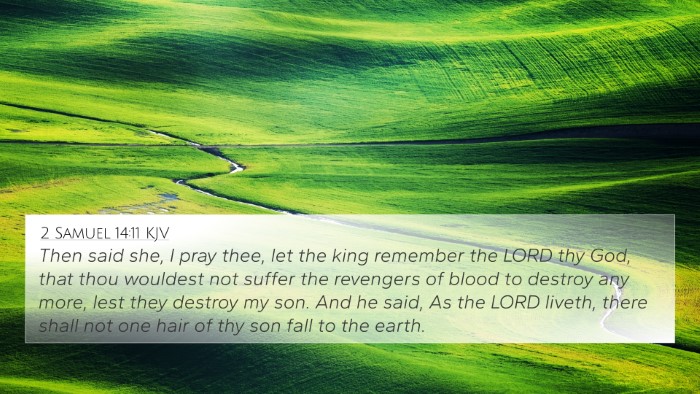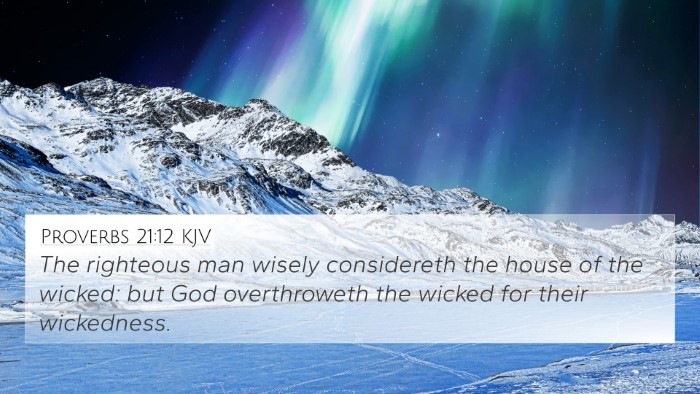Understanding 1 Kings 1:52
Verse: 1 Kings 1:52 - "And Solomon said, If he will show himself a worthy man, there shall not an hair of him fall to the earth: but if wickedness shall be found in him, he shall die."
Overview of the Verse
This verse reflects Solomon's wisdom as he establishes his reign and deals with the potential threat posed by Adonijah. It emphasizes themes of justice, integrity, and the consequences of wickedness.
Commentary Insights
-
Matthew Henry:
Henry underscores the importance of Solomon’s statement as a pivotal moment in his kingship. Solomon demonstrates both mercy and a call to righteousness, indicating his desire for a peaceful reign. The conditional promise of protection based on Adonijah’s character reveals the balance between mercy and the necessity of justice.
-
Albert Barnes:
Barnes highlights that Solomon is establishing clear boundaries for leadership and loyalty. By stating that Adonijah's fate is contingent on his moral standing, Solomon sets a framework for governance that aligns with divine law, suggesting that the integrity of leaders is paramount.
-
Adam Clarke:
Clarke reflects on the necessity of true worth in leadership, suggesting that Solomon’s remarks echo a deeper biblical principle: the righteous are preserved, while the wicked face consequences. This point transcends mere political maneuvering, inviting reflections on divine judgment and human responsibility.
Bible Verse Cross-References
The following verses relate thematically and contextually to 1 Kings 1:52:
- 1 Samuel 12:24: This verse encourages reverence for the Lord in leadership.
- Proverbs 10:2: It highlights the connection between righteousness and safety.
- Proverbs 11:3: This emphasizes integrity leading to security in one's life.
- Micah 6:8: Calls for the people to act justly and value integrity.
- Romans 2:6: God’s judgment shall be based on individual conduct.
- Galatians 6:7: A reminder that one reaps what one sows, akin to the consequences of moral choices.
- James 3:17: The wisdom from above is characterized by purity and righteousness.
Thematic Connections
1 Kings 1:52 encapsulates themes prevalent throughout Scripture, such as:
- The Integrity of Leadership: Many verses address the necessity of ethical behavior in positions of authority.
- Moral Consequences: The Bible consistently teaches that ethical failings lead to dire consequences.
- Divine Justice: The principles of divine judgment are echoed throughout both the Old and New Testaments.
Inter-Biblical Dialogue
This verse invites a comparison between kingship in Israel and the teachings of Christ about leadership and servanthood. Solomon's conditional protection contrasts with Christ's unconditional love and sacrifice, illustrating the evolution of biblical themes surrounding leadership.
Conclusion
1 Kings 1:52 serves as a rich text for understanding the interplay of justice, mercy, and the moral responsibilities of leaders within the biblical narrative. Through careful examination and cross-referencing, one can derive essential lessons on integrity and righteousness that resonate throughout Scripture.
For Study and Reflection
As you reflect on 1 Kings 1:52, consider exploring:
- How does this verse inform your understanding of leadership in a contemporary context?
- What can be learned about the nature of mercy and justice from this passage?
- How does this verse relate to the teachings of Jesus in the Gospels about righteousness?











